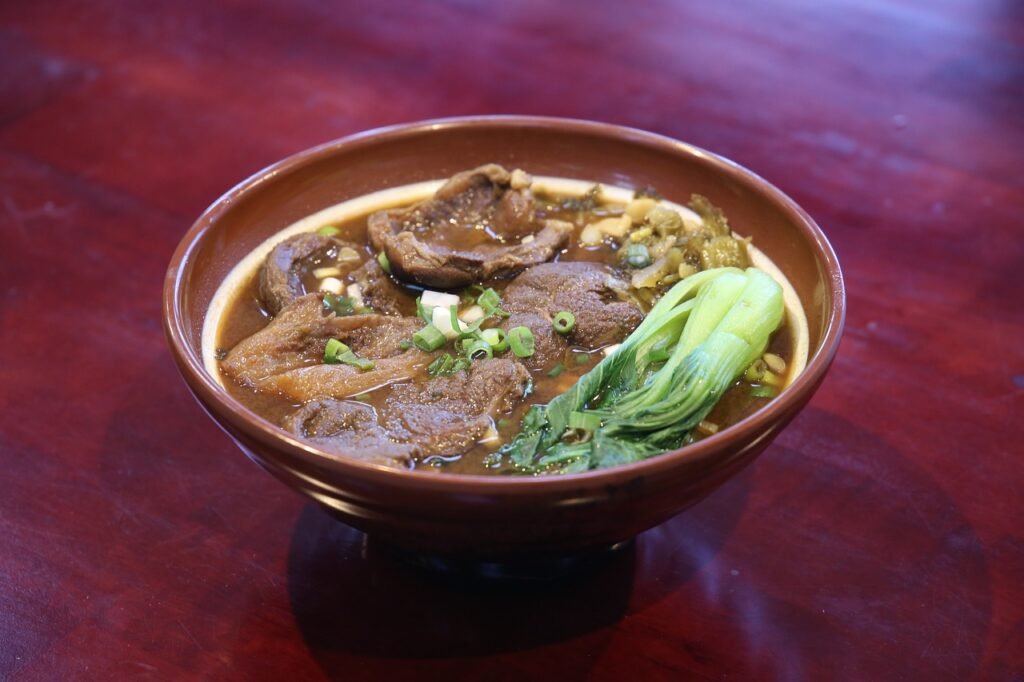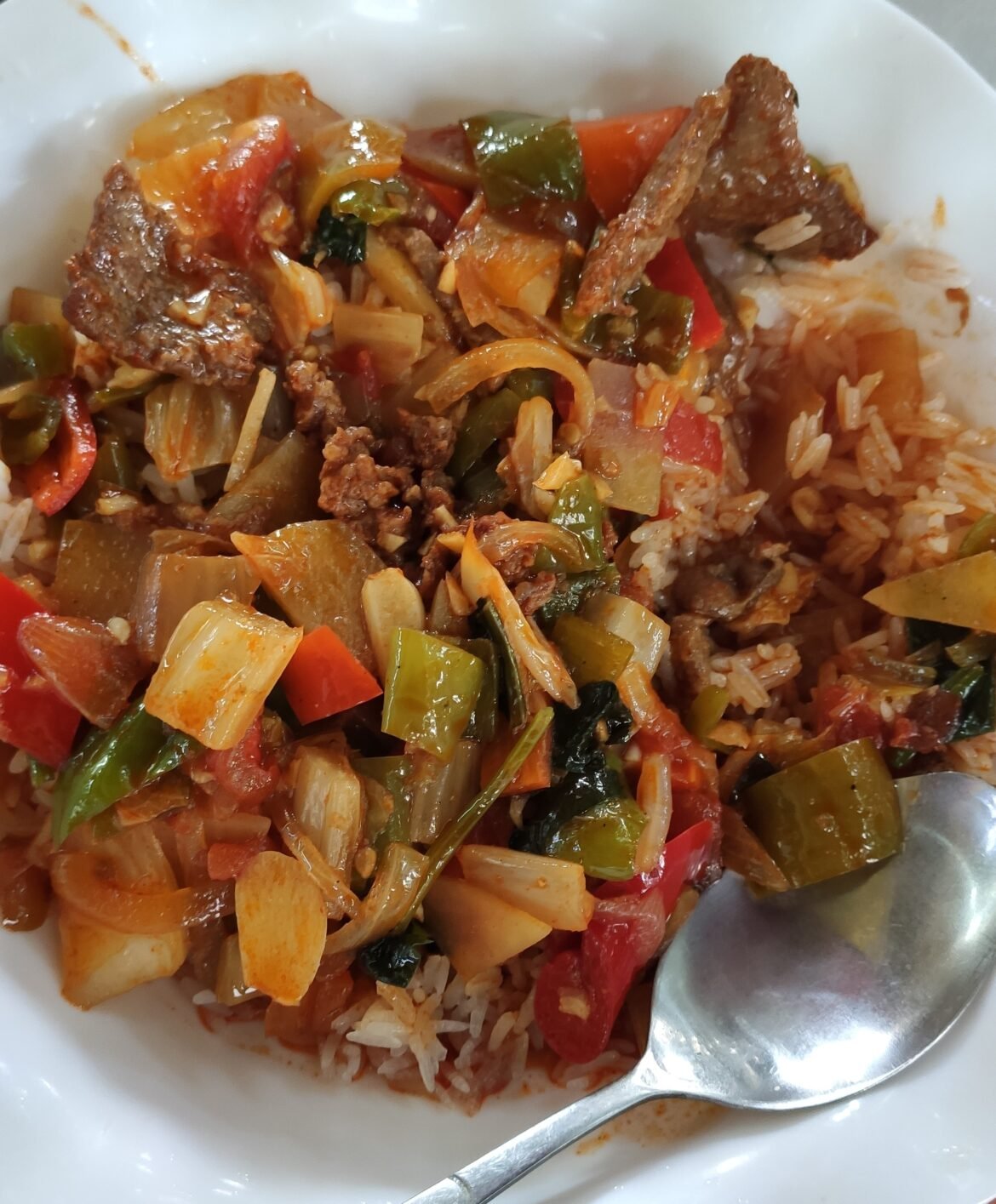Table of Contents
Note: This article is intended as a comprehensive guide to halal food in China. Whether you are a Muslim traveler or simply someone interested in exploring the diverse flavors of Chinese cuisine, this article will provide you with valuable insights and recommendations. From the origins of halal food in China to the variety of dishes available, we will take you on a culinary journey across the country.

Origins of Halal Food in China
Halal food in China has a rich history that dates back over 1,000 years. It was during the Tang Dynasty (618-907) that Islam was officially introduced to China. Arab traders, travelers, and missionaries traveled along the ancient Silk Road and settled in cities such as Xi’an, Kaifeng, Guangzhou, Quanzhou, Yangzhou, and Hangzhou. These early settlers were the ancestors of the Hui people, one of China’s Muslim ethnic groups.
During the Yuan Dynasty (1279-1368), when the Hui ethnic minority was formed, Chinese halal food further developed and new dishes were created. Today, halal food can be found in most major cities in China, thanks to the large Muslim population and the migration of Muslims from western China. Muslim migrants, who run many of the halal restaurants in the country, have contributed to the diversity and availability of halal food options.
The Variety of Halal Food in China
China’s diverse culinary landscape offers an array of halal food in China options for both locals and visitors. From traditional Chinese halal dishes to Middle Eastern, Mediterranean, Turkish, and Pakistani/Indian cuisine, there is something to suit every palate. Let’s explore the different types of halal food you can find in China.
Chinese Halal Food
Chinese halal food combines the flavors of the Middle East with traditional Chinese dishes, creating a unique culinary experience. Wheat-based foods and products, such as noodles and dumplings, are more commonly eaten than rice in many Muslim regions of China. Sweet flavors also play a significant role, reflecting Arabian Muslims’ preference for a sweet taste. Beef and mutton are widely consumed, and Xinjiang Uyghur cuisine is particularly popular.
Xinjiang Uyghur cuisine offers a taste of the northwest region of China, with its famous lamb kebabs and hand-pulled noodles. You can find these delicacies in most Chinese Muslim restaurants, and the aroma of the barbeque stalls along the streets is hard to resist. The Xinjiang Uyghur cuisine is known for its flavorful spices and unique cooking techniques, making it a must-try for food enthusiasts.
Middle Eastern, Mediterranean, and Turkish Cuisine
In major cities across China, you can also find a variety of Arab, Turkish, Moroccan, and Egyptian restaurants offering Middle Eastern, Mediterranean, and Turkish cuisine. These restaurants serve dishes such as hummus, falafel, tabouleh salad, shawarma, and doner kebabs. Some establishments even offer shisha, a popular smoking apparatus, adding to the cultural experience.
What sets these restaurants apart is their attention to detail, including separate prayer rooms for Muslim guests. This ensures that diners can enjoy their meals in a comfortable and respectful environment.
Pakistani/Indian Cuisine
For those craving the flavors of South Asia, several Pakistani and Indian restaurants can be found in major Chinese cities. These establishments offer a wide variety of dishes, including Biryani, Pulao, kebabs, and spicy curries. Accompanying these dishes is the refreshing taste of Raita, a yogurt-based side dish.
The popularity of Pakistani/Indian cuisine in China speaks to the country’s multicultural culinary scene. These restaurants provide an authentic taste of South Asian flavors, satisfying the cravings of both locals and expatriates.
Famous Chinese Halal Dishes
China is home to several famous halal dishes that have become iconic in the country’s culinary landscape. Here are a few must-try dishes that showcase the diversity of halal food in China:
Roasted Whole Lamb (烤全羊)
One of the most famous dishes in Xinjiang Province, roasted whole lamb can be found in major cities across China. This dish involves a special cooking technique where a mixture of flour, water, yolk, salt, ginger, and pepper powder is applied to the lamb before it is baked in a specially made oven. The lamb is served with its mouth stuffed with fresh caraway, creating a visually impressive and flavorful dish.
Lanzhou Hand-Pulled Noodles with Beef (兰州牛肉拉面)
Originating in Lanzhou, this dish has become a staple across China. The hand-pulled noodles are made from wheat flour and served in a savory beef broth with white radish, red pepper, green caraway, and a choice of slim or wide noodles. The combination of flavors and textures makes this dish a favorite among locals and tourists alike.
Hand-Taken Lamb (手抓羊肉)
Hand-taken lamb is a dish with a history of almost a thousand years. The lamb is boiled in a flavorful soup with ingredients such as pepper, onion, and ginger. It can be served hot, cold, or even fried according to the customer’s preference. The name “hand-taken” comes from the tradition of eating the lamb with one’s hands, adding a unique cultural element to the dining experience.
Flavors of Northern Chinese Food — Rich, Bold, and Salty
Northern Chinese cuisine, known for its rich and bold flavors, is characterized by the use of soy sauce, vinegar, garlic, scallions, ginger, star anise, sweet bean sauces, chili peppers, and sesame oil. Northern chefs skillfully combine these seasonings to enhance the natural flavors of the ingredients without overpowering them. The resulting dishes are often oilier and meatier, reflecting the region’s harsh climate and the need for hearty, calorie-rich meals.
Halal Restaurants in China
Finding halal restaurants in China is relatively easy, given the large Muslim population and the presence of Muslim migrants from western China. Here are a few notable halal restaurants in different cities across the country: halal food in China
Baiji Muslim Wonton Eatery in Guilin
Located near the Chongshan Road Mosque, Baiji Muslim Wonton Eatery is a popular spot for locals and tourists alike. The eatery is known for its delicious beef wontons, beef meatballs, and fried rice. With its affordable prices and authentic flavors, it is a must-visit for halal food enthusiasts in Guilin.
Indian Halal Restaurant in Guilin
Situated near the women’s mosques and 200 meters from the Chongshan Mosque, the Indian Halal Restaurant is run by the Islam Association of Guilin. This restaurant offers spicy and flavorful dishes, catering to both northern Chinese and Muslim tastes. Some recommended dishes include pine nut fish, braised beef, and chow mein. Halal food in China
Xinjiang Gourmet Restaurant in Guilin
Located near the Guilin University of Technology, Xinjiang Gourmet Restaurant has been serving authentic Xinjiang Uyghur cuisine for over a decade. With its focus on fresh ingredients and traditional cooking techniques, this restaurant offers a delightful culinary experience. Don’t miss out on their lamb kebabs and hand-made noodles, which are among the restaurant’s specialties.
These are just a few examples of the many halal restaurants you can find across China. Whether you’re in Beijing, Shanghai, Guangzhou, or any other major city, you’re sure to find a wide variety of halal food options to satisfy your cravings. Halal food in China
Halal Food in China: A Fusion of Flavors
China’s halal food scene is a testament to the country’s multiculturalism and culinary diversity. From traditional Chinese halal dishes to Middle Eastern, Mediterranean, Turkish, and Pakistani/Indian cuisine, there is something for everyone to enjoy. Whether you’re exploring the vibrant streets of Beijing, the bustling markets of Shanghai, or the scenic beauty of Guilin, be sure to indulge in the flavors of halal food in China. It’s a culinary journey you won’t forget.
Check before travel in China PUBLIC HOLIDAYS IN CHINA 2024 AND WORK DAYS

